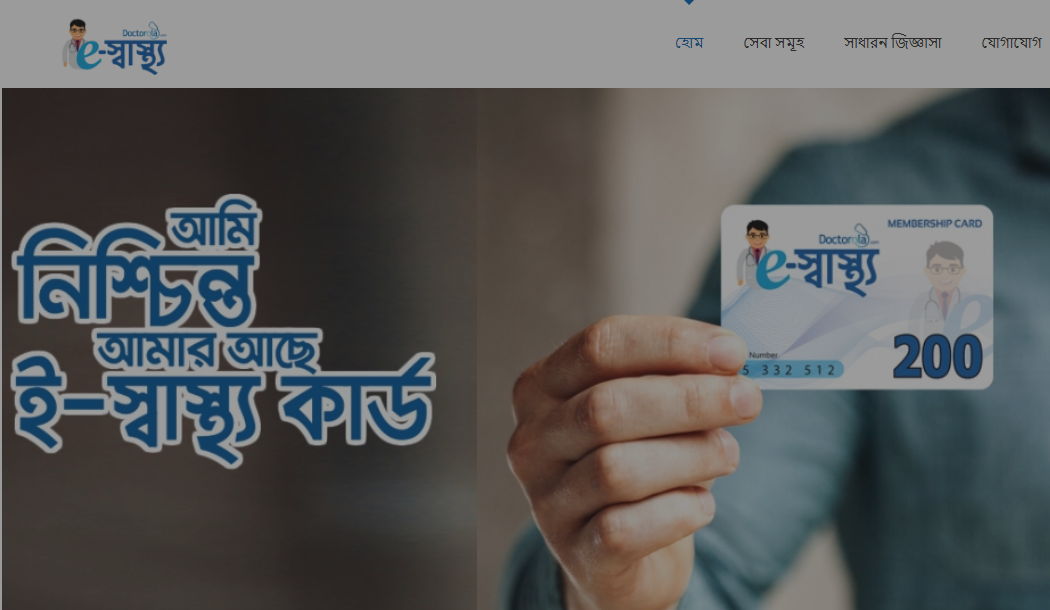
Doctorola, the BD Venture backed health tech company, has recently introduced a new service called e-sashto, a membership scheme that allows users to receive a bundle of services 1) healthcare consultation from doctors over the phone, 2) special priority in doctor appointment booking through Doctorola 3) a flat 20% discount and cashback benefit in over 200 hospitals, health clinics and diagnostic centers and 4) relevant and personalized health tips via SMS.
This is Doctoroal’s first attempt at monetizing its direct user-base, meaning patients.
Over the past few years it has been trying to monetize its relationship with doctors and hospitals where it charges a small commission for every successful appointment it handles and as well as utilizing its doctors’ appointment booking infrastructure as a service, for instance, it has a collaboration with Telenor Health’s Tonic where Tonic uses Doctorola’s platform for enabling appointment booking service for its subscription bundle.
This is an important (and much needed) move for Doctorola for several reasons including the fact that it has the ambition to become a healthcare services platform. And as I mentioned above, this is Doctorola’s first attempt at walking that path of becoming a true healthcare platform. Without any doubt, the stake is pretty high, although Doctorola launched the product to relatively low fanfare. I suspect that Doctorola is well aware of the challenges it is going to face with e-sashto and it wants to see the response.
Doctorola, as a company, has a great brand recognition in the market and equally great reach across the country. It has a huge following, thanks to its regular healthcare related programs and contents, and its doctors’ appointment service continues to grow although revenue from that business remains meager. However, this brand recognition can prove a real advantage for the company in making e-shasto work.
This is why this move to the consumer market is so important for Doctorola. I suspect the company will launch a few more products in the coming days to prove the fact that it has built the foundation over the years to turn itself into a platform. More on that in a moment.
I do think that Doctorola has leverage in automating doctors’ appointment system, this is a b2b product and will require convincing hospitals to buy it, and in enabling, to some extent, maintenance of healthcare record in some form. Doctorola has a real upside there for several reasons. Most importantly, it has access that it can use for offering more sophisticated services which it has done not yet.
Let’s return to e-shasto, I think Doctorola will face a significant challenge in making its e-shasto product work in its existing form. My reading is that Doctorola is targeting mid and low-end customers with its existing e-shasto product who essentially don’t have access to quality healthcare. This is apparent from the offering 1) 200 taka health card, 10 over the phone consultations over a period of 6 months and SMS-based health tips. I do have doubt that high-end and the upper-middle class market will go for this product.
The challenge with the low-end market is that you will need a lot of convincing and put a lot of sales effort in making it work which is likely to have an effect on your overall costing of the product. What I wanted to explain is that if you consider marketing and adaptation cost, it is likely that it will be an expensive affair for Doctorola. You can certainly claim that once people adopt the product, it will significantly reduce the marketing cost and improve the overall cost structure of the product. The question remains how long it will take to make people adopt the product at scale. I do believe that Doctorola has figured out distribution strategy for e-shasto, mostly through collaborations with healthcare related organization, however, in order to have a meaningful lasting traction, I think the product has to be much better than what it is offering now.
At the same time, the question remains how this offering is different from Telenor Health’s Tonic, which offers a similar bundle like Doctorola’s e-shasto where Doctorola is a partner as well. And Tonic has the leverage of Grameenphone.
Having said that, every business has challenges and the entire point of running a business it overcoming those challenges. The upside for Doctorola in e-sastho is huge. If Doctorola can make e-sashto successful then it will be a real entry point for the company to sell more services to the same customers, meaning consumer market. At the same time, it will work as a long-term moat for the company. The competition in healthcare is just getting started. So, you can expect the company to work really hard on it.
My guess is that Doctorola will introduce more services going forward to improve its bundle, such as telemedicine, and make it more lucrative to a wide-range of users. At the same, like Tonic, it will also explore corporate package in the future. However, again, my take is that this will be yet another long game for Doctorola like appointment booking. That is the reality of healthcare, a difficult market to crack.
-
Notes
1) Further reading on Doctorola here.
2) Cover photo: e-sastho screenshot from here.
